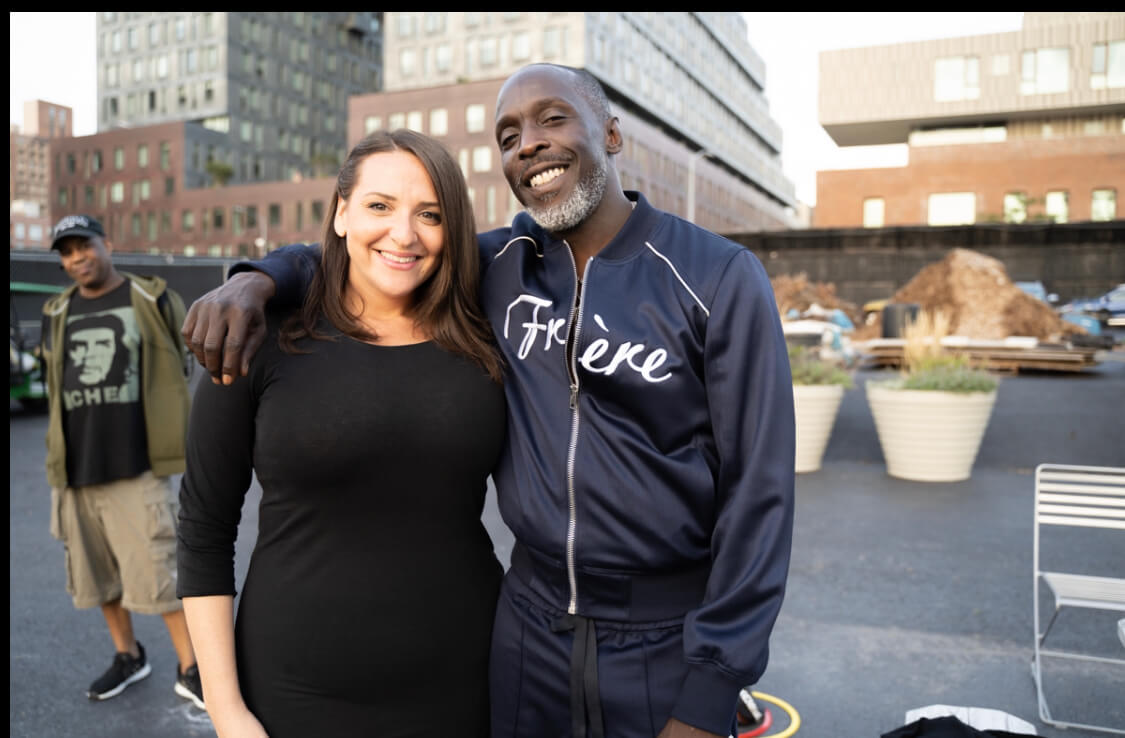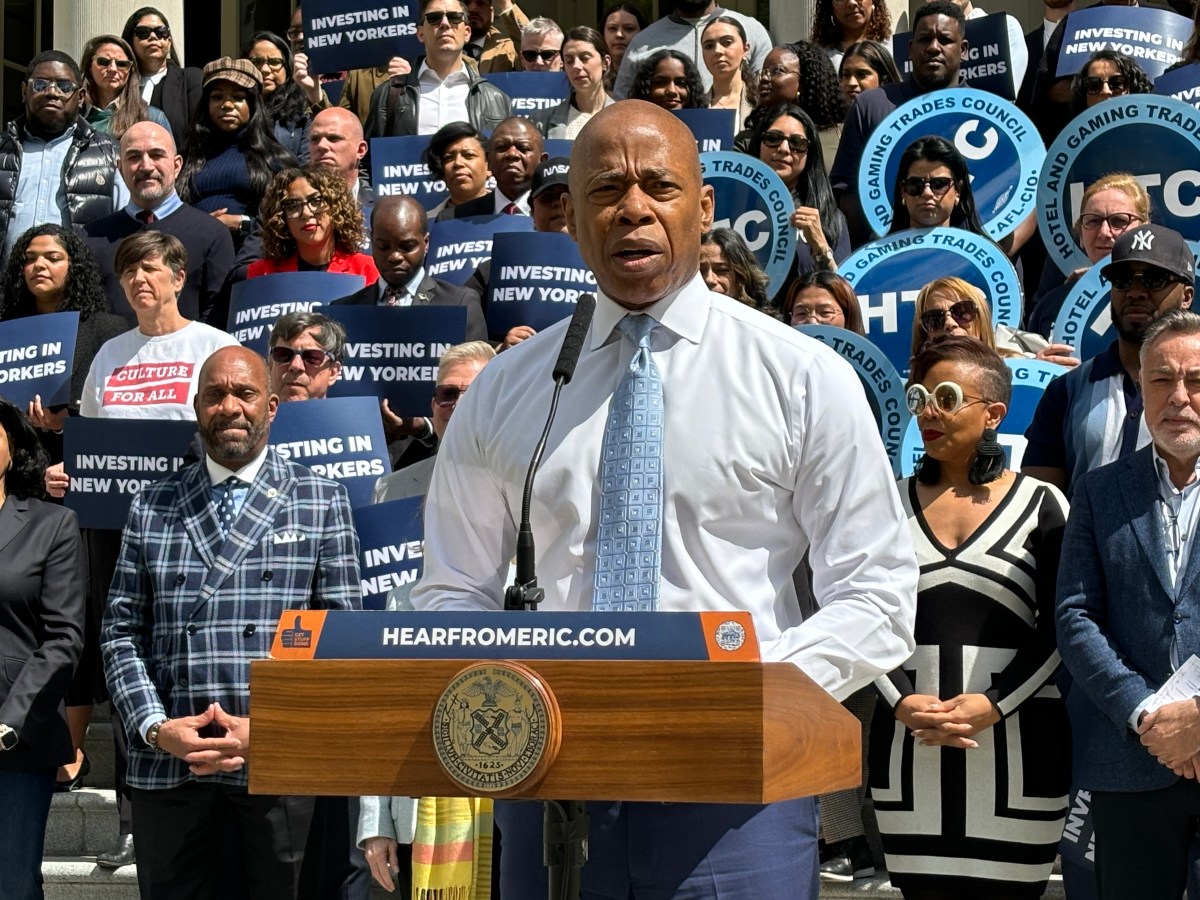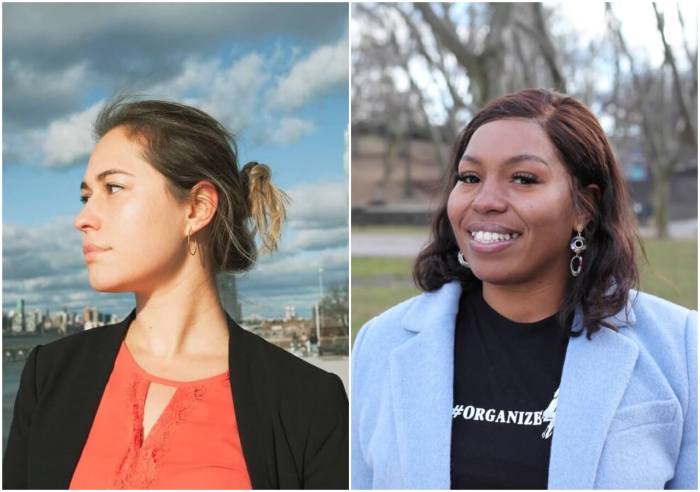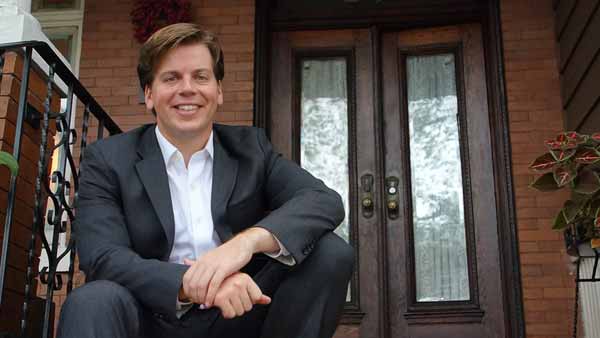There’s a new district leader in North Brooklyn’s Assembly District 50 — Dana Rachlin, a longtime Greenpointer and activist, has been appointed to the position by the area’s local elected officials after the former female district leader resigned in April.
“I am confident that as District Leader Dana Rachlin will be a strong representative for the 50th AD and an ally in the movement to reform the Brooklyn Democratic Party,” said Borough President Antonio Reynoso in a statement.
Rachlin, the founder and executive director of NYC Together and We Build the Block — which she founded with her partner, actor Michael K. Williams — was at a conference in Washington, DC when she got a call from Councilmember Lincoln Restler, she told Brooklyn Paper.
Creating community as district leader
Getting involved in politics as an elected official hasn’t been a longtime goal for Rachlin, but she has been working in her own career to challenge the status quo and make change — particularly in making politics and government more accessible to the public.
“I’m very much a mission driven person, so my mission … why I’m here on planet earth … is to create communities that are inclusive, that are fair, that are safe,” Rachlin said. “I think district leader is just a natural thing to advance my personal mission.”
Rachlin was appointed by Restler, state Senator Julia Salazar, and Brooklyn Beep Antonio Reynoso, and won’t appear on the ballot this year because her predecessor, Naplatarski, was running unopposed.
“I still see my role as being in service to the people of this community and carrying on the work that was already started by Kristina,” she said. “And advancing that work, both the community-sided things and also the work she was doing within the county.”
District leaders typically fly under the radar for those not invested in local politics — the position is part-time and unpaid, and while it is an elected office, the role isn’t very high profile, but they play an important role in county politics.
Each pair of district leaders represents their district in the county committee, helping to appoint poll workers and working to promote elections and candidates and helping to appoint judicial nominees — who often end up in the county Supreme Court.
Rachlin’s history — including stints as an advocate for survivors of domestic and sexual violence at Safe Horizon and in development roles at the Center for Court Innovation and the Greenpoint Chamber of Commerce, as well as at her own organizations — has given her firsthand knowledge of the deficiencies of the judicial and electoral systems in the city, and ideas for how to improve them.
Improving judicial campaigning and poll sites
At the forefront of her mind is changing the way judges are nominated and appointed and making those candidates and roles more transparent for her constituents.
We Build The Block focuses on holding political forums where candidates visited the actual blocks that would be most impacted by the policies being discussed in the campaign, Rachlin said.
“For the mayoral election, it was all about public safety and gun violence,” she said. “We thought it was important that the mayoral candidates come to a block that’s impacted by gun violence.”
Those forums weren’t focused on connecting candidates with the usual people who would take those meetings, like community board leaders or the head of a local tenants association, but with regular people who had been affected by past policies. She hopes to implement that model with judicial candidates.
“I think that that model is really the best of what we can do in every aspect of democracy,” Rachlin said. “In thinking about the judicial campaign, are judicial candidates having face time with folks who are court-impacted? That means victims of crime, perpetrators of crime, and family members.”
As it stands, political circles are small, monetary contributions are important and judicial candidates usually spend campaign time meeting with “stakeholders” — elected officials, including district leaders, Rachlin said. She wants to see more.
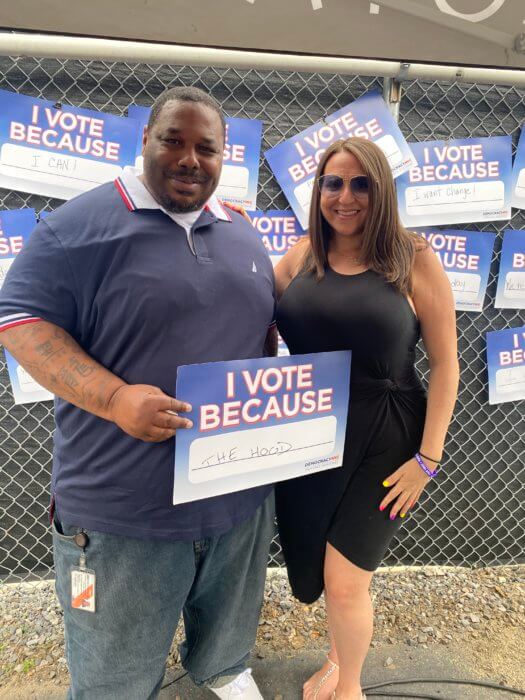
“Do they have the tenacity and the moral bandwidth to speak with folks that will be directly impacted by this?” she said. “Some people are power holders, some people are stakeholders. Just being around power holders, just being at political fundraisers and whatnot should not be enough to advance you to endorsement.”
Rachlin also has strong opinions about the other big part of her job — how elections are run, and who runs them. The city’s Board of Elections is often “inefficient,” she said, and that’s unacceptable.
She said that many people steer clear of engaging with elections altogether because they’re intimidated — and hopes to create some more active, engaging education campaigns surrounding elections and voting.
There’s some work to be done on election day, too, she said. Poll workers should also be well-informed and welcoming, so first-time voters who may have questions about the process don’t feel judged and can receive the help they need.
“I want to overlay the district map with voter turnout data with arrest and crime data and then based on what that looks like, develop outreach, organizing and event-based programming and [educational] campaigning around civic engagement, voter engagement,” she said.
Carrying on a legacy and being transparent
Being appointed district leader is an honor and an opportunity for her to continue Williams’ legacy, Rachlin said. Her partner, who died last year, left a legacy of civic engagement and voting and challenging power structures, she said. And, he would have been a constituent.
“He would be so proud, this is a continuation of the work that we were doing,” she said.
To that end, Rachlin said she and her other elected colleagues need to hold themselves to a higher standard of transparency and accountability to be considered legitimate and trustworthy in their positions of relative power.
“I think that all of us who are in positions like an elected official, in being part of county party politics, have to be held to a higher standard so that citizens feel good about engaging, feel good about participating, feel like their vote matters, feel like change is possible,” she said.


